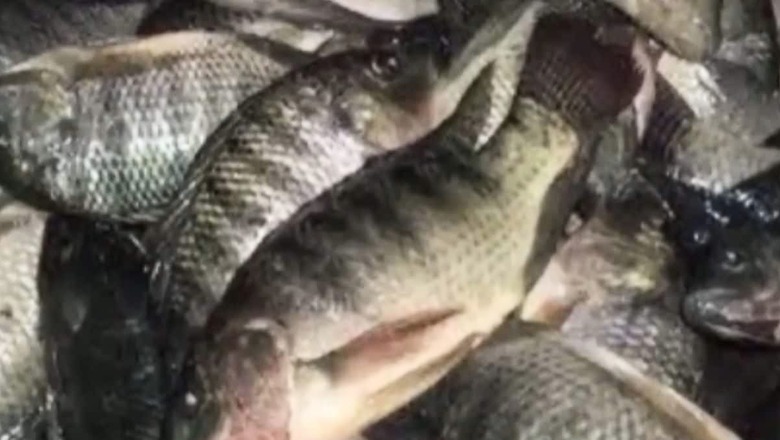
views
Researchers have reported that Jalebi fish, which live in freshwater, are now found in the sea near Devipattinam Beach in Tamil Nadu. This species of fish, which typically thrives in freshwater, is exhibiting intriguing behaviours as it adapts to living in saltwater. The research highlights the benefits and potential drawbacks of this adaptation for both the fish and local fishermen. Known as the ‘Chicken of the Sea,’ Jalebi fish are commonly found in various freshwater habitats such as rivers, ponds, and marshes. They are popular among fish enthusiasts due to their flavour. Originally from Africa, these fish have spread worldwide. Recent studies have discovered that they are now thriving in Tamil Nadu’s Devipattinam Beach.
Professor Muthusamy Anand from Madurai reported that research conducted through the Marine Field Research Department in Pudumadam village near Uchipuli, Ramanathapuram, found Jalebi fish in the sea last November. During a collection of seawater samples for analysis, they observed a group of over 30 Jalebi fish thriving in the saline environment. This finding led to further research into their growth and feeding habits.
Jalebi fish, also known by various names in Tamil, have become widespread globally since their introduction to India through Indonesia, Malaysia, and Sri Lanka in the 20th century. Their high protein content has increased their popularity, with production rising significantly from 9.03 metric tons between 2010 and 2018. They are now exported to China and imported by America.
In India, there is a substantial catch of Jalebi fish, with 70,000 metric tons coming from freshwater sources and 30,000 metric tons from the sea. Predictions indicate that by 2032, demand could reach 2.1 million metric tons. This growing demand may lead to shortages.
These fish naturally adapt to their environment, transitioning between freshwater and saltwater. They have successfully established themselves in saltwater, although they continue to reproduce abundantly in freshwater. In 1958, their spread was restricted due to environmental concerns but later resumed for research and local use. The MPDA research institute was authorised to study them, leading to regulated farming practices for Jalebi fish. Their presence in saltwater environments could impact native fish populations by depleting their food sources and causing ecological imbalances.
While Jalebi fish farming can provide economic benefits to fishermen, the decrease in native fish populations due to overfishing and competition could pose long-term challenges. The spread of Jalebi fish across various regions, including places like Devipattinam Beach, may have both positive and negative consequences.




















Comments
0 comment